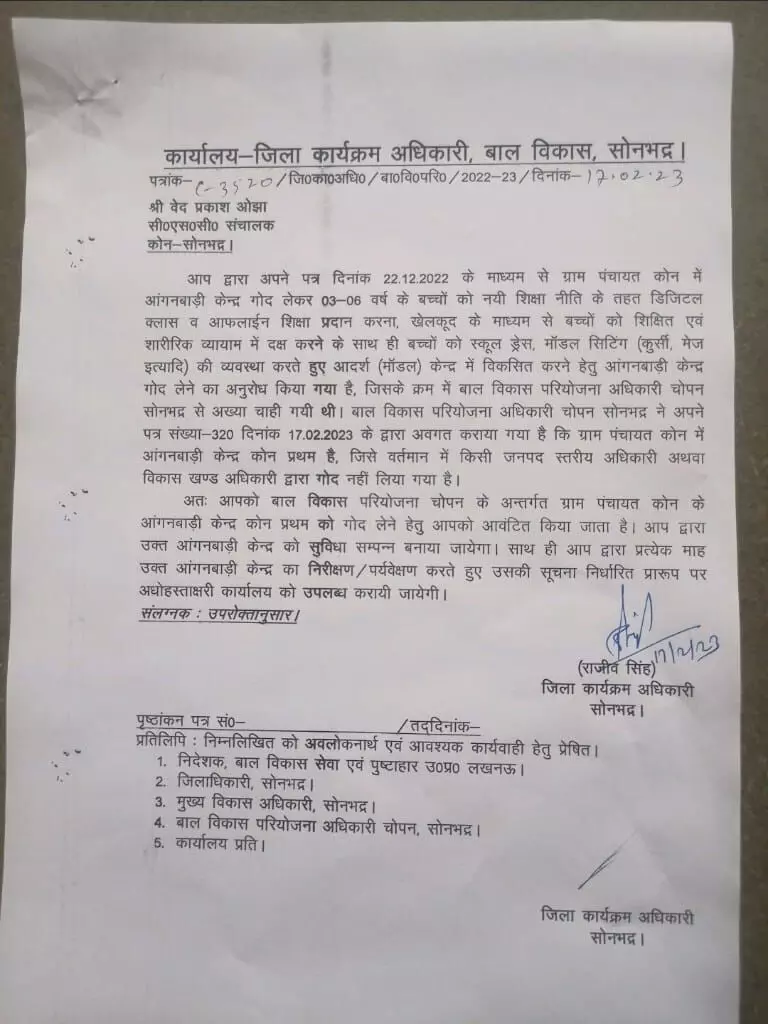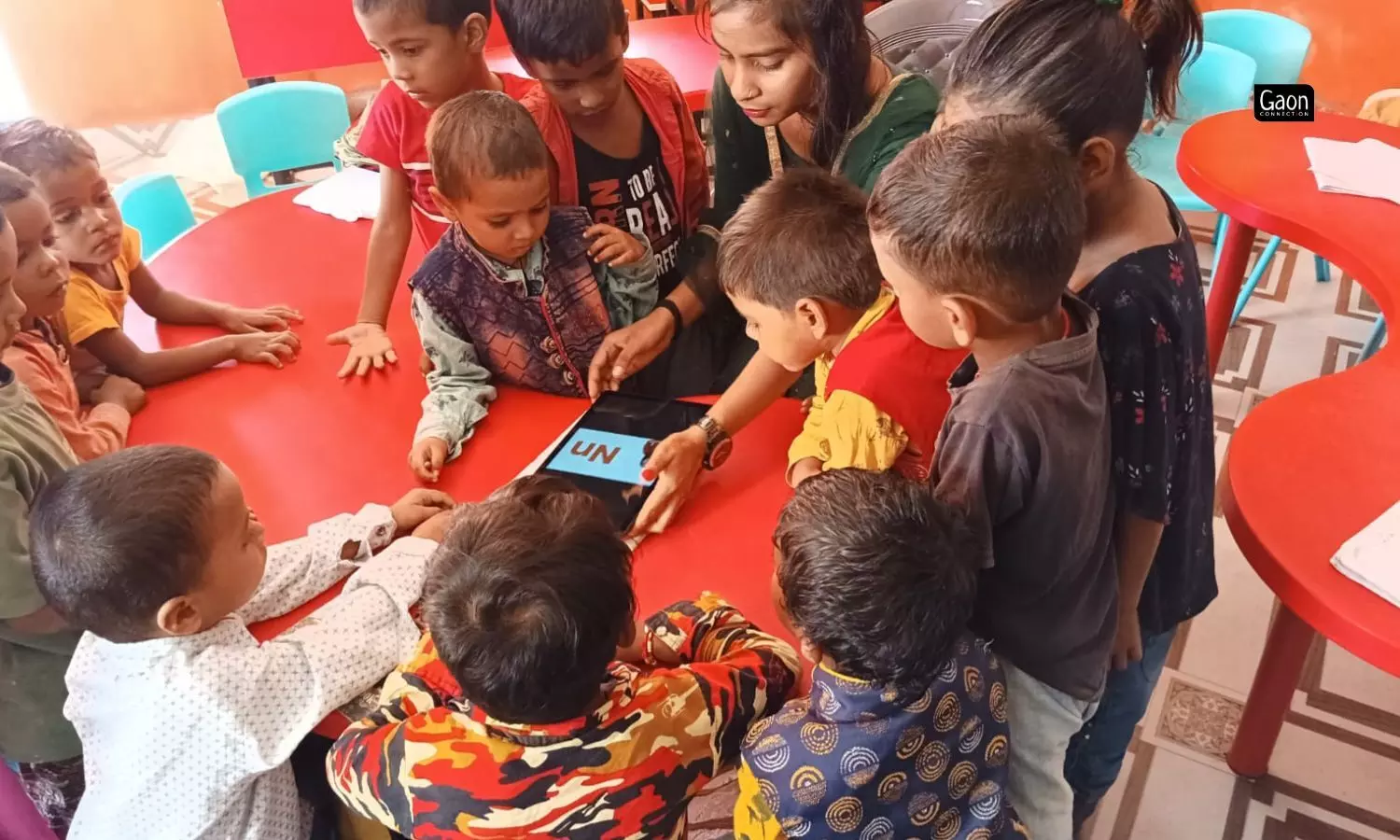Ved Prakash Ojha took it upon himself to transform a dysfunctional anganwadi centre in his village Kon, that falls in Sonbhadra district, Uttar Pradesh. The anganwadi centre had no infrastructure or any facility at all to make the children who came there comfortable or cared for. The village inhabitants have no other option but to send the children there, as they are landless farmers or daily wage labourers.
Ojha decided to adopt the anganwadi early this year in February after the state government declared that anganwadi centres that were not functioning too well were free to be adopted by private individuals
Ojha stepped forward and has since spent time and money on it to turn it into a ‘model anganwadi’.
Also Read: Teacher’s Diary: ‘When the magistrate told me at the train station that I had taught him once’
“In January, this year, the government announced that the dysfunctional anganwadi centres in the district can be adopted by private individuals. I decided to adopt the anganwadi at my village. The government has now declared the centre as a model anganwadi,” Ojha told Gaon Connection.

Ojha stepped forward and has since spent time and money on it to turn it into a ‘model anganwadi’.
“The condition of this anganwadi kendra was not good. Children sat on the floor and there was nothing to entertain them or keep them engaged. The sole anganwadi worker was mostly occupied with administrative duties and paperwork,” he said.
Today, there are benches for the children to sit on, a smart television, audio-visual aids, and most importantly a nutritional breakfast for the kids. The enrollment at the anganwadi has gone up three fold since Ojha took it upon himself to revamp it and there are 60 children who come here to learn and play.

Ojha spent Rs 36,000 to get benches for children. He spent an additional Rs 14, 000 to revamp the anganwadi by painting its walls, putting up posters and having bright and colourful graffiti. The revamp cost him another Rs 14,000. “My monthly expenditure on maintaining and running the anganwadi is about Rs 12,000,” he said.
The money for the running of the anganwadi comes from a digital common service centre he owns in the village.Ojha has also recruited another staff member, Neha Patel, to help the sole anganwadi worker there was before. He pays her Rs 7000 a month as a salary.

Sonbhadra district in Uttar Pradesh is one of the most underdeveloped districts in the country.
Neha Patel joined the centre in February and is a graduate. She takes care of the children from 8 am to noon daily except on Sundays when the centre is closed.
“Children learn very quickly from the digital aids like the smart TV and the Alexa speakers. I am confident that they are the sharpest kids in the entire Sonbhadra district,” Patel told Gaon Connection with a beaming smile.
Rajeev Singh, the district programme officer of the state government’s Bal Vikas Seva Evam Pustahar Vibhag inaugurated the anganwadi centre on July 10.

There are 60 children who come here to learn and play.
Sonbhadra district in Uttar Pradesh is one of the most underdeveloped districts in the country. It is one of the 115 districts in the country that come under the Union government’s Aspirational District Programme, to develop these least developed districts in the country.
According to the NITI Ayog website, this program enables people to participate fully in the burgeoning economy. Districts are encouraged to first catch up with the best district within their state, and subsequently aspire to become one of the best in the country, in the spirit of competitive & cooperative federalism.


















